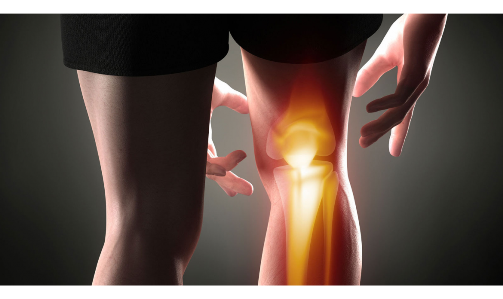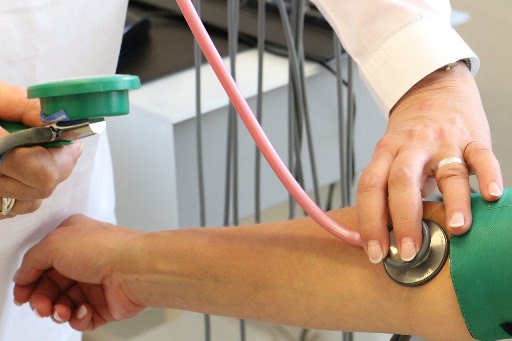Male infertility is a health issue, in which the male partner is unable to cause pregnancy in his fertile female partner. For better understanding, lets start by discussing male reproductive system in brief. Sperms are produced in the testicles. Then they move into a series of duct found in epididymis, present on the top of each testicle. Epididymis is also known as sperm holding gland. Sperms are stored in epididymis till they mature. Then they move into a larger duct called vas deferens, and then to another duct called ejaculatory duct. At the time of ejaculation, the muscles of ejaculatory duct contract and pour the semen into the urethra, forcing them out of the penis. This entire process is supported by gonadal hormone called testosterone, and gonadotropin hormones secreted by pituitary gland.
Based on the above information, the causes for male infertility can broadly be divided into three main categories, which include pretesticular, testicular, and post-testicular causes.
Pre-testicular causes
These causes originate outside the testis. A few are mentioned below:
- Cigarette smoking, excess alcohol consumption, obesity, hypertension, and certain medications are a few pre-testicular causes for infertility in males.
- Hormonal imbalance could be another significant pre-testicular cause of infertility in males. The level of gonadal hormones (secreted from testis) in males is regulated by a series of gonadotropin hormones secreted from pituitary gland. A few such hormones are Follicles-stimulating -hormone (FSH), and Prolactin.
- FSH is produced in pituitary gland and helps to regulate the production of sperms. High FSH indicates problem in sperm production.
- Prolactin is a pituitary hormone. When produced in large quantity, it can stop the testicles from producing testosterone. This might lead to erectile dysfunction and low sex drive.
- Heredity and genetic abnormalities may also cause infertility in males. Extremely low sperm count may show one of the below mentioned genetic abnormalities:
- Klinefelter Syndrome: It is a chromosomal abnormality in which a male has an extra X chromosome (47XXY). This causes poor development of testis, and thus exceptionally low production of sperms.
- Y chromosome micro-deletion: It is a condition in which there are a few missing genes on Y chromosome, which cause infertility in males.
- Kallmann syndrome: Lack of Gonadotropin-releasing hormone (GnRH) leads to delayed or absent puberty. GnRH is released from hypothalamus and controls the release of FSH.
Testicular causes
The testicular causes of infertility are primary defects of the testes. A few defects of testis include:
- Production of less or abnormal sperms. A few problems include:
- Oligospermia: The number of sperms in semen is insufficient to bring about conception.
- Teratospermia: Sperms produced are of abnormal shape. Such sperms are unable to penetrate the surface of woman’s egg.
- Asthenospermia: In this condition, sperms have poor motility. They either swim feebly or not at all.
- Oligoteratosthenospermia: In this condition, the sperms are not only produced in lesser quantity, but also have abnormal shape and poor motility.
- Azoospermia: No sperms are present in the semen.
- Varicocele: Testicles are situated in scrotum, which lies outside the abdomen. It is so because sperms thrive better in 2 degrees cooler temperature than body temperature. Any kind of heat source on testicles can led to infertility in male.
Varicocele is a condition in which the varicose vein in the scrotum gets dilated, and thus the valves that move the blood away from the scrotum are pulled apart and the blood is unable to move against the gravity. This leads to extra heat generation in the testicles. This heat causes fewer sperm production and that too of inferior quality. Apart from varicocele, obesity and sedentary lifestyle can also generate heat in testicles.
- Testosterone: Testosterone, secreted from testicles, is an important hormone for development of sperms. Low testosterone could show problem in either pituitary gland or testicles.
- Injury or infection in testicles can also cause infertility in males.
Post-testicular causes
After the sperms are produced in testicles, they pass through a series of ducts. If there is a blockage anywhere along this system, it will prevent the movement of sperms. So, the causes which obstruct the movement of sperms in the ducts, fall under post-testicular causes.
- Vasectomy: It is a surgical procedure for male contraception, during which the vas deferens is cut and is either tied or sealed to stop the sperm movement.
- Congenital bilateral absence of vas deferens (CBAVD): In this condition, testis develops and functions normally but vas deferens fails to develop properly. This again blocks the movement of sperms to the ejaculatory duct.
- Inguinal hernia: It occurs when intestinal tissue protrudes through a weak spot in the abdomen. It causes pain during movement. It also leads to swelling in the scrotum and may lead to infertility in males.
- Ejaculatory duct obstruction (EDO): EDO is a pathological condition, in which the ejaculatory duct may get blocked. This prevents the ejaculation of semen.
- Epididymitis (bilateral): It is usually bacterial infection in the ducts situated inside the epididymis. Ducts get choked with infectious tissue, thus blocking the sperm movement. It also causes pain during ejaculation and sexual intercourse.
- Blockages can also occur due to formation of cysts and stones in the ducts.
Diagnosis of Male infertility
The diagnosis of male infertility involves the following:
- Testis is physically examined, and clinical history of the patient is taken.
- Semen Analysis: Semen is analyzed to check for abnormalities. Main components of semen analysis include
- Volume (in mL) of semen which comes out when man ejaculates
- Concentration of sperm (number of sperm present in per mL of ejaculated semen)
- Motility (how fast the sperms move) of sperms is analyzed. Sperms with higher motility have more chances to fertilize an egg.
- Morphology of sperms (shape) is checked to find out the percentage of normal sperms produced.
- Presence of antibodies.
- Blood test is done to evaluate the level of different hormones and look for hormonal abnormalities.
- Genital tract imaging: Various techniques such as ultrasound, magnetic resonance imaging (MRI), computerized tomography scan (CT scan), and positron emission tomography (PET) are used to scan the male reproductive tract. Any blockages or abnormalities in the tract can easily be detected with the help of these techniques.
Treatment of male infertility
There are many treatment methods available to treat the various causes of infertility in males.
- Surgery: Varicocele can be surgically treated. Even the blocked tubes can be surgically repaired. If surgery fails, doctor may suggest percutaneous epididymal sperm aspiration (PESA). During PESA, sperms are removed from epididymis with the help of a needle and can be used for IVF (In vitro fertilization) or can be frozen for future use.
- Hormone therapy: The gonadotropin hormones of the pituitary gland stimulate sperm production in the testicles. In case these hormones are found to be in insufficient levels, they can be taken as medication to increase the sperm production.
- In vitro fertilization (IVF): During IVF, the conception of a child occurs outside the human body. The eggs collected from the ovaries of the female are fertilized by sperms collected from the testis of the male. This fertilization takes place outside the female’s body, in a special incubator in lab. Once the fertilized egg develops into an embryo, it is implanted into the female’s uterus for further growth.
- Artificial insemination: If the sperm concentration is found to be low in the male partner, doctor may suggest artificial insemination. During this process, male’s semen is collected, and is washed and concentrated. Then it is introduced into his partner’s uterus.
- Intra-cytoplasmic sperm injection (ICSI): If the semen has very few sperms, and it becomes impossible to fertilize egg through IVF, doctor may suggest ICSI. During this process, the egg is directly injected with a single sperm. Once the embryo is formed, it is transferred into the partner’s uterus.
Prevention of male infertility
A few causes of male infertility can be prevented by avoiding, alcohol, cigarette smoking, and body-building steroids. Tight fitting underwear should also be avoided to stop excess heat production. Moreover, one should be careful about the sexually transmitted diseases.































